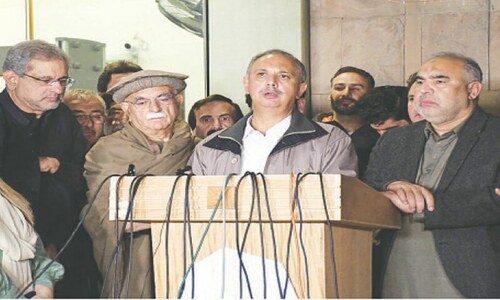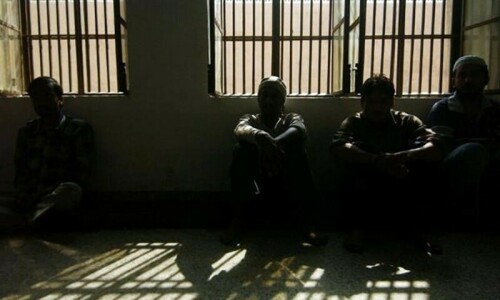KARACHI: Experts on water and environmental issues warned on Thursday of potentially disastrous consequences Pakistan faced owing to increasing water scarcity, a problem, they said, which had intensified owing to India’s active strategy to control and manage water resources and the fast changing climatic patterns.
They were speaking at a briefing organised by Pakistan Water Partnership in collaboration with Farozan and The Nature magazines at the press club.
Raising the issue, Dr Pervaiz Amir regretted that water had become a highly politicised subject in the country, leaving the country without a water policy for seven decades.
He favoured construction of large dams to address growing agricultural and electricity needs of the country as the storage capacity of Tarbela and Mangla dams had been reduced over the years owing to silting.
“A dam is like a water tank. It’s the people who decide how to regulate it. Small dams could only meet minimal localised needs,” he said, while rejecting what he described as ‘misconceptions’ and propaganda on dams’ constructions.
Responding to a question, he said work on Bhasha dam was at a standstill for many years whereas Dasu dam was about to be completed but it was only for the purpose of storage.
“India’s strategy is to maintain status quo in Pakistan. Around 750MAF water is available to India yearly of which 287MAF is stored in dams. Its storage capacity is 30pc, which they want to increase up to 50pc. In comparison, Pakistan with 140MAF available water has a storage capacity of 7pc,” he said.
Striking off Article 161
Elaborating further, Sardar Mohammad Tariq said that .India had control over 85pc of water that came from Indian-held Kashmir. Now, it was out to damage Pakistan’s water interests more as it planned to finance a dam over Kabul River in Afghanistan.
“There has been a 10MAF reduction in our rivers since 2002. Unfortunately, successive governments didn’t develop a comprehensive long-term plan to meet country’s water needs,” he said, adding that the country lost 111bn cusecs of water in past three floods.
The experts also spoke about high water wastage (owing to poor agricultural practices), which stood at around over 40pc, and suggested growing high-value crops with less water needs.
They also suggested striking off Article 161 of the Constitution under which a province with a power plant would get its royalty.
“A dam can exist or affect people of two provinces. Second, the royalty can be shared per the 1991 Water Accord,” they said.
On Karachi, they said the city needs planning and infrastructure to tackle a heatwave and a tsunami in the face of rising temperature.
“Water shortages in the city can be easily addressed by building at least three desalination plants and plugging water theft. The sea must not be used for dumping sewage and should be nourished so that people could benefit from it,” Dr Amir noted.
Both experts described polythene bags as a major threat to environment and water safety and suggested a complete ban on their usage across Pakistan, particularly Karachi.
Published in Dawn, March 16th, 2018












































